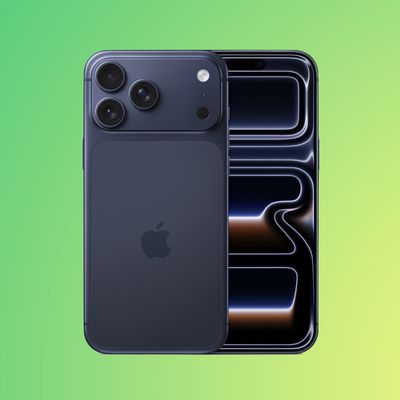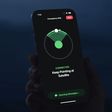Largan Precision, one of the current suppliers for the iPhone's camera lens component, today confirmed that it will ship lenses for 3D sensing modules in the second half of 2017, suggesting inclusion in the next-generation "iPhone 8." The confirmation comes from Largan CEO Adam Lin, who refrained from mentioning which company exactly the modules would be allocated for (via Nikkei).
The list of companies available is very short, according to analyst Jeff Pu, who pointed out that Apple is expected to be the only company in the world to launch a smartphone with a 3D sensing module in 2017. In total, Pu estimated that Largan is set to supply 90 percent of the iPhone's rear camera lenses, 50 percent of its 3D sensing lenses, and up to 30 percent of the front-facing camera lenses.

The features and design of the iPhone 8's front-facing sensor bar have remained one of the more uncertain aspects of renderings and mockups over the past few weeks. It's still unclear whether the iPhone 8 will include a dual-lens front-facing camera or keep the single-lens of current generation devices.
The inclusion of a 3D sensing module further confuses things, since it hasn't been suggested whether or not the technology would be directly integrated into the camera lens, or added onto the side among the ambient light sensor and proximity sensor. Pu's data appears to suggest the latter outcome.
Key iPhone camera lens provider Largan Precision on Wednesday confirmed it would ship lenses for 3-D sensing modules in the second half of this year, according to the company's chief executive.
"We will have lenses for 3-D sensing [module used in smartphone] ready to ship in the second half this year," said Adam Lin, Largan's chief executive in a press conference after the company's annual general meeting.
A 3D sensing front-facing camera has been a rumored feature of the iPhone 8 since February, when KGI Securities analyst Ming-Chi Kuo reported that the upcoming iPhone will gain a "revolutionary" front-facing camera system that consists of three modules that enable fully-featured 3D sensing capabilities. The technology's applications could include facial and iris recognition features.
LG has been named as one of the other potential suppliers of 3D modules for the iPhone 8. If the biometric sensing features do arrive in iPhone 8, they're believed to be fueled by technology that Apple acquired from Israeli company PrimeSense in 2013. PrimeSense is known as the creator of the original 3D body sensing technology used in Microsoft's first-generation Kinect peripheral for Xbox 360.





















Top Rated Comments
https://www.asus.com/us/Phone/ZenFone-AR-ZS571KL/
Not saying other signs don't point to Apple, and technically the Lenovo launched in 2016, but Apple is not expected to be the only smartphone with a 3D sensing module in 2017...
Personally, I'm not keen on a user facing 3D imager...